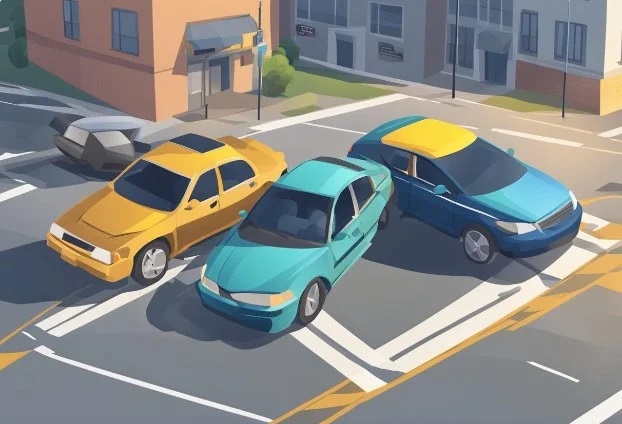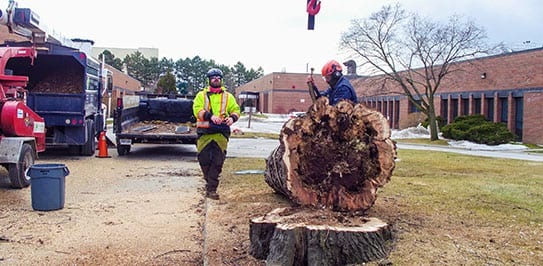Car accidents are a common occurrence on roads and highways across the world. Many of these car accident lawyers in Charleston, WV are caused by human error, which can be attributed to a few common causes. Understanding these causes can help drivers take preventative measures to avoid accidents and stay safe on the road.
One of the most common causes of car accidents is distracted driving. This can include activities such as texting, talking on the phone, eating, or adjusting the radio while driving. When drivers are not fully focused on the road, they are more likely to miss important details and react slowly to unexpected situations, increasing the risk of an accident.
Another common cause of car accidents is speeding. When drivers exceed the posted speed limit, they have less time to react to hazards on the road and are more likely to lose control of their vehicle. Speeding also increases the force of impact in the event of a collision, making injuries more severe and potentially life-threatening.
Role of Driver Behavior
Car accidents are often caused by driver behavior, which can be influenced by several factors such as alcohol and drugs, distracted driving, speeding and reckless driving, and fatigue and drowsiness. It is crucial for drivers to understand how these factors can affect their driving and take necessary precautions to avoid accidents.
Influence of Alcohol and Drugs
Alcohol and drugs are major contributors to car accidents. Driving under the influence of alcohol or drugs can impair a driver’s judgment, reaction time, and coordination, making it difficult to control the vehicle. It is important for drivers to avoid driving while under the influence of alcohol or drugs to prevent accidents.
Distracted Driving
Distracted driving is another common cause of car accidents. Smartphones and other electronic devices have made it easier for drivers to become distracted while driving. Driver inattention, distractions, and multitasking can lead to accidents by taking the driver’s attention away from the road. It is important for drivers to avoid using electronic devices while driving and to stay focused on the road.
Speeding and Reckless Driving
Speeding and reckless driving are also major contributors to car accidents. Road rage, tailgating, and other aggressive driving behaviors can lead to accidents by making it difficult for other drivers to react. It is important for drivers to obey traffic laws and to drive defensively to avoid accidents.
Fatigue and Drowsiness
Fatigue and drowsiness can also impair a driver’s ability to control the vehicle. Driver fatigue, fatigue and drowsiness can cause a driver to fall asleep at the wheel, making it difficult to react to changing road conditions. It is important for drivers to get enough rest and to take breaks when driving long distances to avoid accidents.
Impact of Road and Weather Conditions
Road Conditions
Road conditions play a crucial role in determining the safety of drivers and passengers alike. Poor road conditions such as potholes, uneven surfaces, and lack of proper signage can lead to accidents. In particular, stop signs and stop lights are critical to ensuring the safety of drivers and pedestrians. Failure to obey traffic signals can result in collisions that can cause severe injuries or even fatalities.
Weather Conditions
Inclement weather conditions can significantly impact road safety, leading to increased accident rates. Rain, snow, fog, and ice can all cause hazardous driving conditions. Hydroplaning is one of the most common causes of car accidents in rainy conditions. Hydroplaning occurs when a thin layer of water builds up between the tires and the road, causing the tires to lose traction. When this happens, the driver may lose control of the vehicle, causing it to slide or spin out of control.
Weather conditions contribute to approximately 11 percent of all fatal car accidents in the United States. These weather-related accidents are more likely to happen when vehicles are forced to operate on road surfaces that are covered in slippery ice and snow. Unannounced changes in road surfaces can also contribute to accidents. Not all road surfaces are uniform, and drivers must be aware of these changes to avoid losing control of their vehicles.
Legal and Insurance Aspects
Legal Representation and Liability
When a car accident occurs, determining who is at fault is crucial in determining liability. Liability refers to the legal responsibility for the damages caused by the accident. In most cases, the at-fault driver’s insurance company will be responsible for paying for the damages to the other party’s vehicle and any injuries sustained.
If the at-fault driver does not have insurance or their insurance policy does not fully cover the damages, the injured party may need to hire a personal injury attorney to file a car accident claim. Personal injury attorneys can provide legal representation and help the injured party navigate the legal process. Many personal injury attorneys offer free consultations to discuss the specifics of the case and determine if legal action is necessary.
Insurance and Compensation
Car insurance is designed to protect drivers in the event of an accident. If a driver is at fault for an accident, their insurance company will typically be responsible for paying for the damages and injuries sustained by the other party. However, insurance companies may try to minimize the amount of compensation paid out to the injured party.
It is important for individuals involved in a car accident to understand their insurance policy and the compensation they are entitled to receive. Compensation may include payment for medical bills, lost wages, and pain and suffering. If the insurance company is not offering fair compensation, the injured party may need to seek legal representation to negotiate a fair settlement.
Conclusion
Car accidents can happen due to a variety of reasons, and it is essential to understand the common causes to help prevent future accidents. Distracted driving, speeding, and driving under the influence of drugs or alcohol are some of the leading causes of car accidents.
If you are involved in a car accident, it is crucial to take the necessary steps to ensure your safety and well-being. If there are injuries or deaths involved, it is essential to call for medical assistance and law enforcement immediately.
In the case of an injury, it is essential to seek medical attention as soon as possible, even if you feel fine. Some injuries may not show symptoms immediately, and it is better to be safe than sorry.
Head-on collisions and rollover accidents can be particularly dangerous and can result in severe injuries or death. It is essential to wear seat belts and ensure that all passengers in the car are wearing seat belts as well.
Overall, understanding the common causes of car accidents and taking the necessary precautions can help prevent accidents and ensure the safety of everyone on the road.



